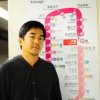The unprecedented digital art museum, TeamLab Borderless, features about 50 digital artworks. Fully 10,000 square meters in area and divided into five zones, the museum breaks boundaries through digital art.
The installations freely move around the space, at times making contact with other pieces, and with visitors. This allows the visitors to have a fully immersive digital experience using their bodies to explore.
Jointly operated by Mori Building and teamLab, the museum aims to promote Tokyo's image as an emerging art hub as well as a leading international city, now and in the future. The museum's five zones are: Borderless World, Athletics Forest, Future Park, Forest of Lamps, and EN Tea House.
What to see at TeamLab Borderless?

In Borderless World, visitors are free to move around in a three-dimensional space and connect with the artworks which in turn, also move in and out of the rooms freely. This section emphasizes the full use of the senses and body without any boundaries.

Athletics Forest provides a more physical and interactive experience that requires more movement. Here, there are artworks that one can integrate with, like cross swinging hanging bars, a trampoline against the backdrop of space, and a huge space with different elevations to climb up and down.

Future Park promotes collaborative creation. Visitors are able to enjoy the aquarium on display while sketching their own drawings on the side. This area can begin as a solo creative process but eventually change to co-creative experience.

In Forest of Lamps, the aim is to become aware of the presence of others, and this is experienced through standing close to a lamp that would later spread to the lamps nearest until it reaches the closest person. It echoes human interaction and communication.

Finally, the last zone is the EN TEA House. Costing only 500 yen, a selection of different types of tea can be chosen. It is then poured into a teacup and flowers bloom in it, digitally. The experience allows one to become aware of nature and how it changes, as well as communicating with it through a teacup.
A digital art experience that caters to all, teamLab Borderless is for all ages. In the advancement of technology and finding a niche in the art scene, the museum's concept promotes digital art further while also providing a new way to experience it more fully.
What's the difference between Borderless and TeamLab Planets?
With the two TeamLab locations in Tokyo to choose from—TeamLab Planets can be visited in nearby Toyosu—you may be wondering which one is worth visiting and how they differ?
Borderless in Odaiba is larger with more exhibits and takes more time to explore, including a whole floor—The Athletic Forest—dedicated to younger audiences. On the other hand, if you are more pressed for time, Planets in Toyosu could be better as a more distilled, curated experience.
While Borderless focuses on light and sound, Planets puts emphasis on surface and texture too, creating unusual sensory experiences like the Soft Black Hole – a room with a beanbag-like flooring that tests your attempt to transverse it while staying upright, or a water-filled exhibit where you can gaze at koi and colored light projections on the water's surface. For all their differences, they share some installations too, including a crystal light room, inflated ball room and floating light flower experience.




































